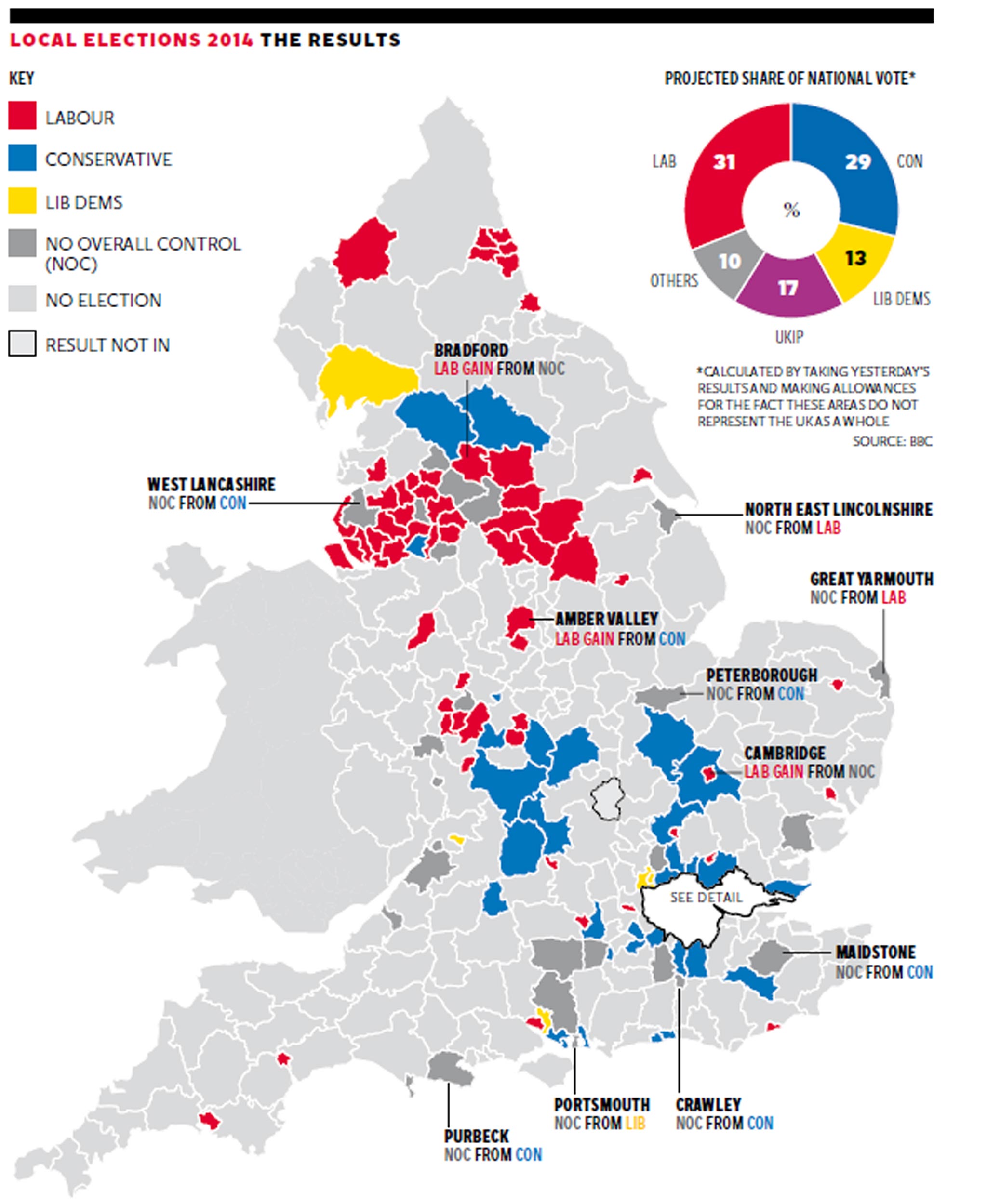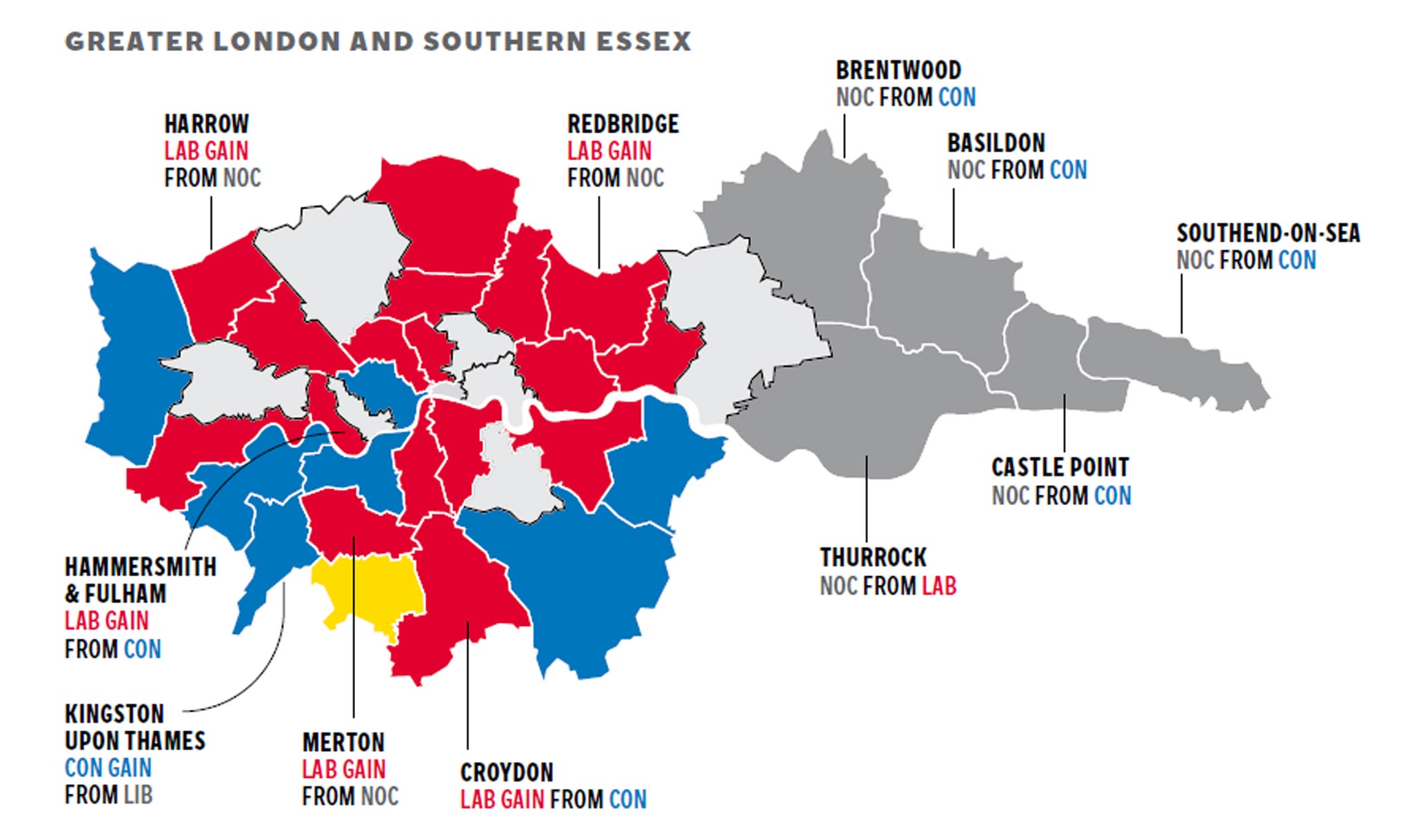Local election results 2014: Hatred of elected politicians has led to this outcome


Sometimes a small volcano erupts in politics and there is little the main parties can do about it.
Over the next few days, many thousands of words will be written about the threat posed by Ukip and how the other parties should respond. In truth these elections illustrate the powerlessness of the supposedly powerful.
Mighty leaders tour the country with their entourage of nervy advisers. During the campaign, leaders announce new policies. Some make embarrassing cock-ups. A section of the electorate is determined not to listen. It wants to give them all a kicking.
As I wrote on Tuesday, Labour was in power until recently. The Conservatives and Liberal Democrats rule now. The only way to stick two fingers up to parties contaminated by the complexities of power is to vote for Ukip, a party with a charismatic leader who articulates familiar, long-held fears about “Europe” and “immigration”, terms that represent far wider insecurities.
On Twitter, a thousand pundits will tell Cameron to move even further rightwards or condemn the leaders of Labour and the Lib Dems. But we know what happens when Cameron tries to appease Ukip. He sought to do just that by offering an In/Out referendum on the EU. The consequence of his desperate move was an increase in support for Ukip. We also know what happens when a party leader does the opposite and challenges Ukip. Clegg took on Farage in two televised debates. Ukip’s support soared.
There will be a lot of waffle over the next few days from internal dissenters who seem wiser than they are: “We need to take on Ukip” or “We need to woo Ukip”. It has all been tried before and in the current anti-politics context, it makes no difference.
The loathing of elected politicians, and indeed other once trusted institutions, is a driving force. So are the specific circumstances. Lib Dems were doomed to electoral catastrophe after they moved from being seen as a party to the left of New Labour to one that formed a partnership in government with a party of the radical right, a Conservative party still in thrall to Thatcherism.
We have been here before with the rise of the SDP in the 1980s. For a time the SDP terrified both Labour and the Conservatives, although soon it became clear that the Tories would be the beneficiaries of the split on the left.
Next year it is still likely that Labour will be the main beneficiary of Ukip’s rise, even though it too looks on in near impotent fear as it loses votes to Farage. In terms of policy, Ukip is a party of the right, battling with the Conservatives in its focus on Euroscepticism and enthusiasm for a smaller state.

The haziest outlines of the next 12 months can be discerned from these results. Ukip will still be a force, but not as forceful as they are this weekend. The Lib Dems are in deep trouble and still will be so in a year’s time. Cameron or Miliband will be the next prime minister and neither of them, nor the rest of us, know which it will be.
There is no pattern across the country. After a frightening economic crash in 2008, with the Tory wing of the Coalition acting from 2010 onwards with impatient radical hunger, and in an era of youthful leaders learning and failing to learn the arts of leadership, the battle will not be resolved until polling day and perhaps not then.

For Cameron, Miliband, Clegg and their wary troops panic would be a mistaken response. Given the scale of the anti-politics mood, the conjunction with the European elections and the perceived contamination with power of the main parties, the surprise is that Ukip did not do better.
Join our commenting forum
Join thought-provoking conversations, follow other Independent readers and see their replies
Comments